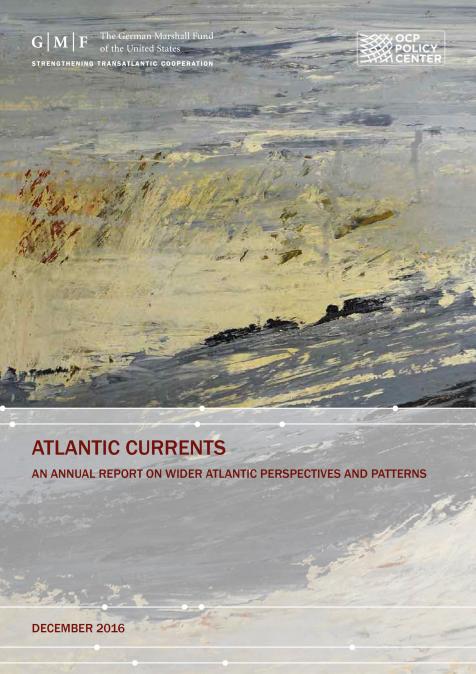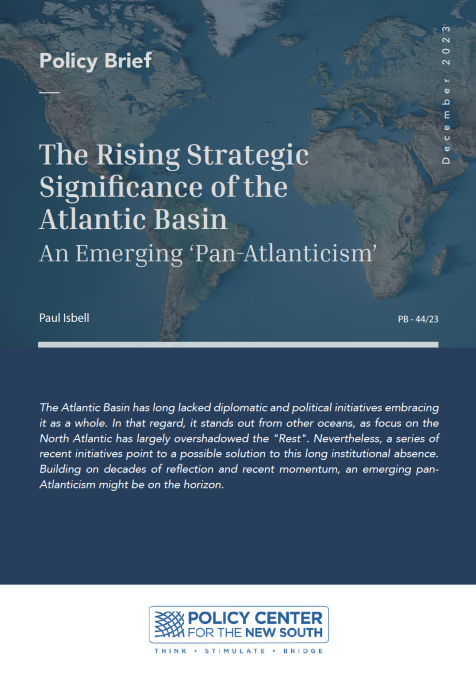Publications /
Annual Report
Book / Report
The authors of the Atlantic Currents report cross-examine the trends and challenges of the Atlantic space under different perspectives, driven by the desire to move away from the North-South divisions and influences. Among the factors that motivate the communities in the Atlantic basin to co-operate with each other, we find the succession of financial and banking crises (now economic), which have destabilized nearly if not all the countries of the globe since 2008, more specifically those of the Atlantic basin.
Among the themes and topics to be discussed, the potential elaboration of an African Atlantic community with a specific role in the continental architecture stands out. Opportunities (natural resources, mining, agriculture, etc.) as well as the obstacles (historical memory, security, institutional organization, etc.) to the creation of common African agendas are also highlighted. According to the analysis in Atlantic Currents, African economies are the least integrated with one another, while the total trade figures of the Atlantic basin economies show 58.5%. The banking sector, often dominated by foreign players, has seen the emergence and establishment on the African continent of several banks such as those of Morocco, Nigeria and South Africa in the last 10 or 15 years. It is important to note that these countries have not only acquired a sophisticated banking sector but also have diversified the industry.
In the case of Morocco, Attijariwafa Bank, BMCE Bank and Banque Populaire are among the most established banking groups in Africa. These banks are the driving force behind the growth of Moroccan investments on the continent.
The report also deals with the new EU Global Strategy (EUGS) and its implications for the African continent. The document also dives into the state of EU-Africa relations, current challenges and areas of priority collaboration. In addition to recommendations for improving EU-Africa relations other chapters will analyze the economic integration of Africa, an important and relevant solution in the face of persistent crises. China, India and the EU, for example, are opting for this type of agenda, while Morocco and South Africa have taken the lead as principal investors in their continent.
The security aspect is not to be outdone since the author draws a distinction between the North Atlantic countries (having experience in this field with actors such as Europol) and the less institutionalized countries in the South Atlantic, which makes the exercise of cooperation more difficult. Moreover, the stakes of the green energy revolution are contemplated, taking into account both the ample financial resources to be introduced, but also the necessary political frameworks that must be carefully implemented by the countries in order to achieve the set objectives. It also highlights the motivations and incentives that encourage some financial players (and sometimes their governments) to tap into specific financial spheres rather than others.




